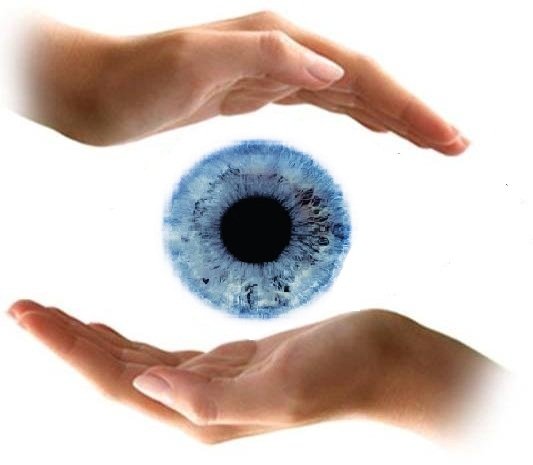All Categories
Featured

While lots of people comprehend the value of shielding their skin from the sunlight, the unsafe results of ultraviolet (UV) rays on eye health often go forgotten. Too much direct exposure to UV radiation can lead to a variety of eye troubles, some of which can result in long-term damage. Whether you're saturating up the sun on a summer season day or strolling outdoors on a gloomy mid-day, securing your eyes from UV rays is important. Right here's what you require to understand about the effects of UV radiation on your eyes and exactly how to protect them.
What Are UV Rays? UV rays are a sort of electro-magnetic radiation sent out by the sunlight. They are classified into 3 types:
UVA Rays: These penetrate deep into the skin and eyes and can add to long-term damages. UVB Rays: These rays are extra extreme than UVA and are largely in charge of surface-level damage to the eyes and skin. UVC Rays: These are one of the most unsafe yet are mainly soaked up by the Earth's ozone layer and do not commonly reach us. UVA and UVB rays are the main perpetrators behind eye-related damages.
Short-Term Effects of UV Exposure on the Eyes. Even short-term exposure to extreme UV rays can damage your eyes. One common condition created by this is photokeratitis, or "sunburn of the eye." Signs of photokeratitis consist of:
Agonizing, red eyes. Sensitivity to light. Tearing or too much watering. Short-term vision loss or fuzzy vision. Photokeratitis is generally short-lived, however it offers as a warning of how damaging UV exposure can be, even in small dosages.
Long-Term Effects of UV Exposure. Prolonged direct exposure to UV radiation can cause more serious and permanent eye conditions, such as:
Cataracts: UV rays can increase the development of cataracts, a condition that creates clouding of the eye's natural lens, causing blurred vision and, if untreated, loss of sight.

Macular Deterioration: UV exposure can damage the retina, specifically the macula, enhancing the danger of age-related macular degeneration (AMD), which affects central vision.
Pterygium: A development of tissue on the white component of the eye that can cross the cornea, causing pain, inflammation, and vision problems.
Pinguecula: UV direct exposure can trigger yellowish deposits to base on the conjunctiva, resulting in inflammation and dry skin.
Skin Cancer Cells Around the Eyes: The fragile skin surrounding your eyes is extremely susceptible to UV radiation, raising the risk of skin cancers like basic cell carcinoma and squamous cell carcinoma.
Just How to Safeguard Your Eyes from UV Rays. Securing your eyes from UV rays is simple and calls for a couple of conscious behaviors:
Spend in High Quality Sun glasses: Select sunglasses that obstruct 100% of UVA and UVB rays. Seek labels that define "UV 400" defense. Wrap-around styles are ideal as they obstruct UV rays from the sides also.
Use a Wide-Brimmed Hat: A hat with a brim a minimum of 3 inches vast can considerably minimize UV exposure to your eyes and face.
Limit Direct Exposure Throughout Height Hours: UV rays are greatest in between 10 a.m. and 4 p.m. If you must be outdoors during these hours, see to it you're adequately secured.
Don't Be Misleaded by Clouds: UV rays can permeate via clouds, so it is essential to put on sunglasses also on overcast days.
Safeguard Your Eyes Year-Round: Snow, sand, and water can reflect UV rays, intensifying their effects. Eye protection isn't simply for bright summertime days-- ensure you're covered in all seasons.
Use UV-Blocking Contact Lenses: Numerous call lenses currently feature UV defense. If you wear get in touches with, ask your ophthalmologist concerning lenses with integrated UV filters for added security.
Urge Eye Defense for Kid: Children's eyes are extra conscious UV rays since their lenses are clearer, enabling more radiation to reach the retina. Ensure they use sunglasses and hats during outside tasks.
Normal Eye Examinations. Routine check-ups with an eye treatment professional are essential for very early discovery of any UV-related damages. An eye doctor or ophthalmologist can assess your eyes, suggest protective steps, and detect problems like cataracts or macular deterioration early.
Final thought. By putting on UV-blocking sunglasses, restricting sun direct exposure during optimal hours, and remaining regular with eye exams, you can ensure your eyes remain healthy and balanced and your vision stays clear for years to come. Protecting your eyes from UV radiation isn't just concerning convenience-- it's a crucial action in preserving your lasting eye health and wellness.
Latest Posts
Explore WyHy Federal Credit Union – Low Rates for Members
Discover Montclare Auto Repair’s Leading Auto Repairs and Why Drivers Rely On Them
Explore Your Financial Partner at WyHy – Wyoming’s Best Banking Choice for Your Money Goals
More
Latest Posts
Explore WyHy Federal Credit Union – Low Rates for Members
Discover Montclare Auto Repair’s Leading Auto Repairs and Why Drivers Rely On Them
Explore Your Financial Partner at WyHy – Wyoming’s Best Banking Choice for Your Money Goals